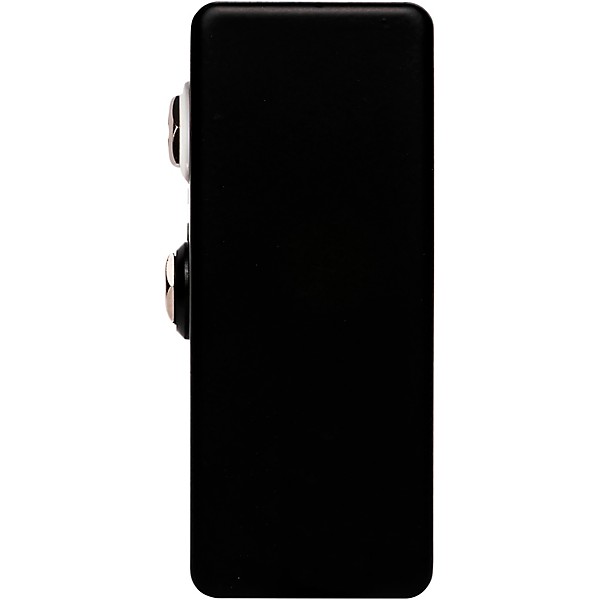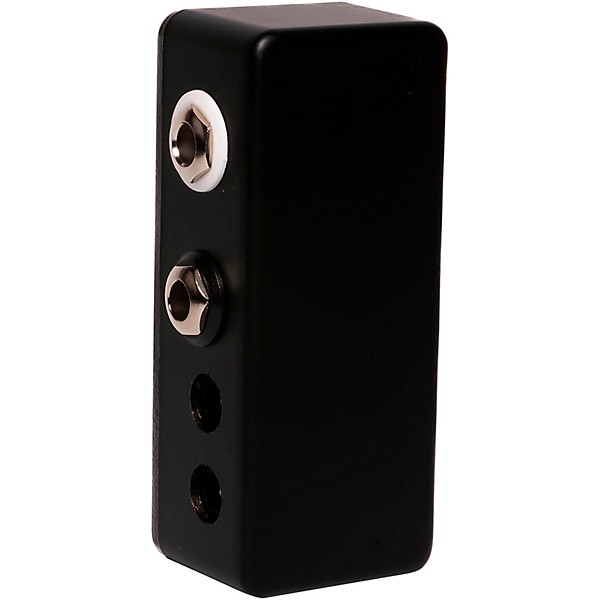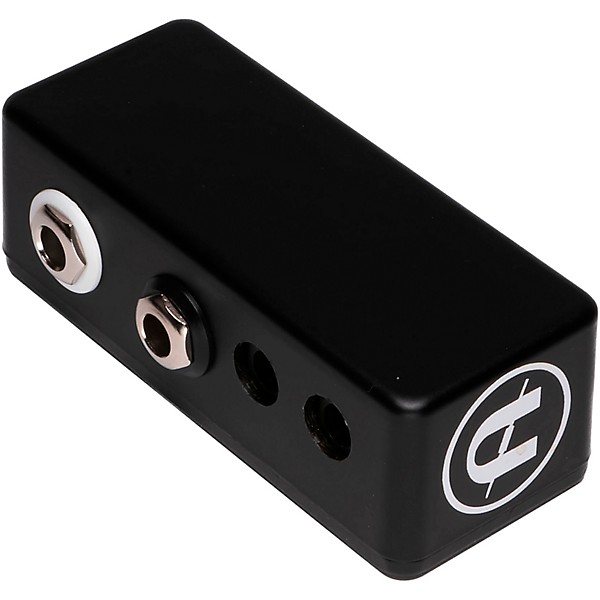Guitars
Guitars
Amps & Effects
Amps & Effects
Used & Vintage
Keyboards & MIDI
Keyboards & MIDI
Drums
Drums
DJ Equipment
DJ Equipment
Basses
Basses
Recording
Recording
Live Sound
Live Sound
Accessories
Accessories
Mics & Wireless
Mics & Wireless
Music Software
Music Software
Lighting
Lighting
- Popular Brands
Band & Orchestra
Band & Orchestra
Platinum Gear
Platinum Gear
Deals
CopperSound Pedals Buffer Signal Stabilizer Black
$79.00
6-month special financing^ + $3 back in Rewards** Limited time Learn More
Protect your gearLearn more
Cover drops, spills or cracks with Pro Coverage
Need Help?
 Description
Description
The CopperSound Buffer signal stabilizer reinforces your guitar’s signal, maintaining your high frequencies and helping your tone battle the natural capacitance of your instrument cable. Built into a compact enclosure, the Buffer pedal takes up minimal space on a pedalboard. Given the low profile, it can easily fit underneath most boards, saving real estate for pedals that you’ll interact with. Drawing less than 5mA, the Buffer is equipped with an auxiliary power jack, allowing you to run power through it to another pedal.
At its core, a buffer’s job is to combat capacitance, a naturally occurring trait, specifically when using long stretches of cable. Your guitar’s high frequencies become attenuated as the signal travels over long distances of unbalanced instrument cable—when determining your needs for a buffer, you want to focus on your overall cable length. Cables under 18.5' typically don’t exhibit capacitance issues by themselves, but you’ll want to account for all cable between your guitar and amp, including patch cables on your board.
Buffer placement in your signal chain can also be a significant factor to consider. Notably, most fuzz pedals like to be as close to the unaffected guitar signal as possible. Placing buffers before fuzz will often yield a much different fuzz sound than what is typically produced.
At its core, a buffer’s job is to combat capacitance, a naturally occurring trait, specifically when using long stretches of cable. Your guitar’s high frequencies become attenuated as the signal travels over long distances of unbalanced instrument cable—when determining your needs for a buffer, you want to focus on your overall cable length. Cables under 18.5' typically don’t exhibit capacitance issues by themselves, but you’ll want to account for all cable between your guitar and amp, including patch cables on your board.
Buffer placement in your signal chain can also be a significant factor to consider. Notably, most fuzz pedals like to be as close to the unaffected guitar signal as possible. Placing buffers before fuzz will often yield a much different fuzz sound than what is typically produced.
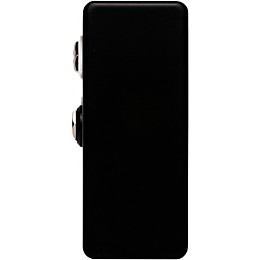
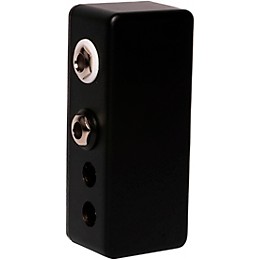
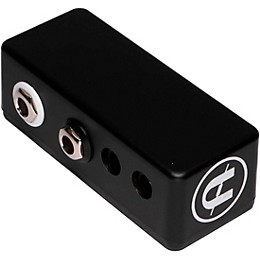
 Features
Features
- Reinforces your guitar’s signal
- Maintains high frequencies
- Helps your tone battle the natural capacitance of your instrument cable
- Compact size
- Draws less than 5mA
- Equipped with an auxiliary power jack
 Specs
Specs
- Courtesy 9V power output for another pedal or device
- 5mA consumption
- Standard 2.1 mm x 5.5 mm power supply
- In/out: 1/4 cable
Featured Articles
 Reviews
Reviews
3
2 Reviews
50%
of respondents would recommend this to a friend
Filters
Best Uses
- Amateur Recording1
- Home Studio1
- Performances1
- Professional Recording1
- Paperweight1
Cons
- Not Durable1
Describe Yourself
- Experienced1
- Professional Musician1
Pros
- Compact2
- Excellent Sound Quality2
- Good Selection Of Effects1
- Responsive1
- Versatile1
Reviewed by 2 customers
Awesome tool with courtesy power out
submitteda year ago
byMatt
fromBaltimore, MD
Excellent little device. It's super small and also has an independent power output that allows you to power another pedal. Ended up buying a second one for my studio desk.
Junk!
submitted2 years ago
byCarlos
fromReno, NV
I bought 2, both failed. One only lasted 8 days and broke right at the start of a show. The other only lasted 6 weeks. I replaced it with an Empress and I'm happy so far.
- Previous
- 1
- Next
 Q&A
Q&A
Have a question about this product? Our expert Gear Advisers have the answers.
No results but…
You can be the first to ask a new question.
It may be Answered within 48 hours.


